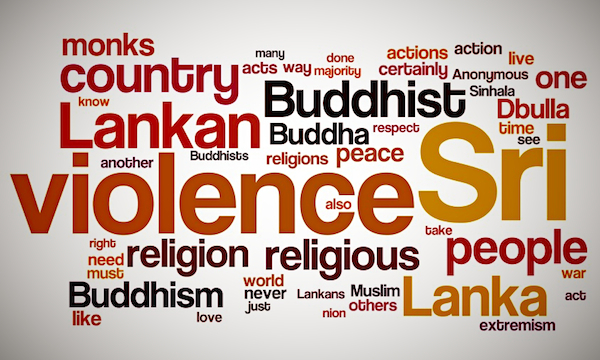Exactly two years ago to date, Not In My Name (NION) – Sri Lanka’s first web based campaign against violent religious extremism – was created and launched, just under a week after a violent attack on a mosque in Dambulla, led by rabid Buddhist monks. At the time, the situation in the area was very volatile. Despite appeals for calm, there widespread concern whether communal violence would arise in and around Dambulla, as well as elsewhere in the country.
NION was an attempt to showcase that the violence in Dambulla, and any religious extremism, was simply unacceptable. Two years hence, the rise of violent Buddhist extremism looks not just unstoppable, it is very much part of the mainstream and no longer just fringe lunacy.
Over 1,400 citizens signed up to NION, including a former President, leading academics, diplomats, activists, artists, singers, cartoonists, journalists and editors, writers, actors, bloggers and photographers.
All the signatures, with all the comments by each signatory, was printed and delivered to the President with a signed letter, with copies to relevant departments and line ministries as well as the monk at the centre of the violence in Dambulla, Ven. Inamaluwe Sumangala Thero. The President’s Office acknowledged the receipt of the over 300 page document, but never got back as to what it intended to do in order to address the extremism.
Leading political commentators call the prevalence of Sinhala-Buddhist extremism today a ‘theocratic proto-fascism’, with the likes of the BBS as the de facto ‘ayatollahs and cultural police’ in Sri Lanka. Garbed in saffron, monks today storm into Ministries for completely illegal man-hunts, violently break up press conferences, routinely issue warnings and threats against other communities and religions and moreover, enjoy the blessings of the Mahanayakes as well as government.
As noted recently by Kalana Senaratne, a leading columnist on Groundviews,
“Also, the sense of fear and terror spread by groups such as the BBS is not something felt by the Sinhala-Buddhists alone; rather it applies to all ethnic and religious communities. This is irrespective of the claim made by some that many there are certain sects within the different religious groups that are not targeted by the BBS.
Therefore, in short, the BBS needs to be stopped, not primarily because it is destroying the Sinhala-Buddhists but because it is a menace to the Sri Lankan polity and its constituent peoples. The BBS and such groups need to be stopped because they are generating such hatred that people will come to view violence as the only practical option available in the face of the marauding monks approaching them.”
NION and the madness in Dambulla seems ages ago in light of the violent Buddhism extremism Sri Lanka’s witnessed over the past two years, across the island. Whereas it is entirely clear that this rabid and twisted religiosity benefits from State patronage, what is uncertain is whether the same forces that, on-demand, unleash this violent extremism can ultimately control and contain it over the long-term.
